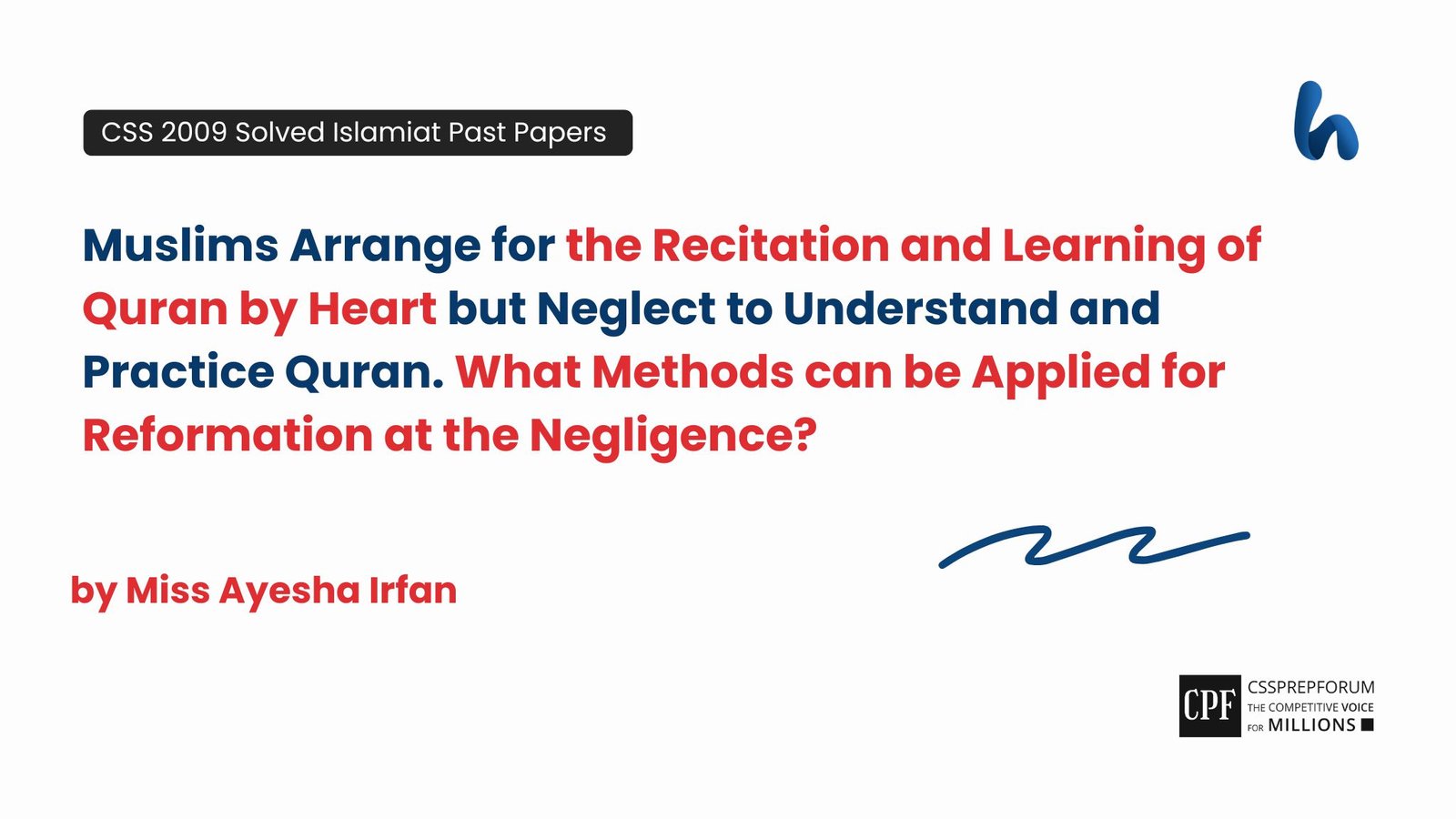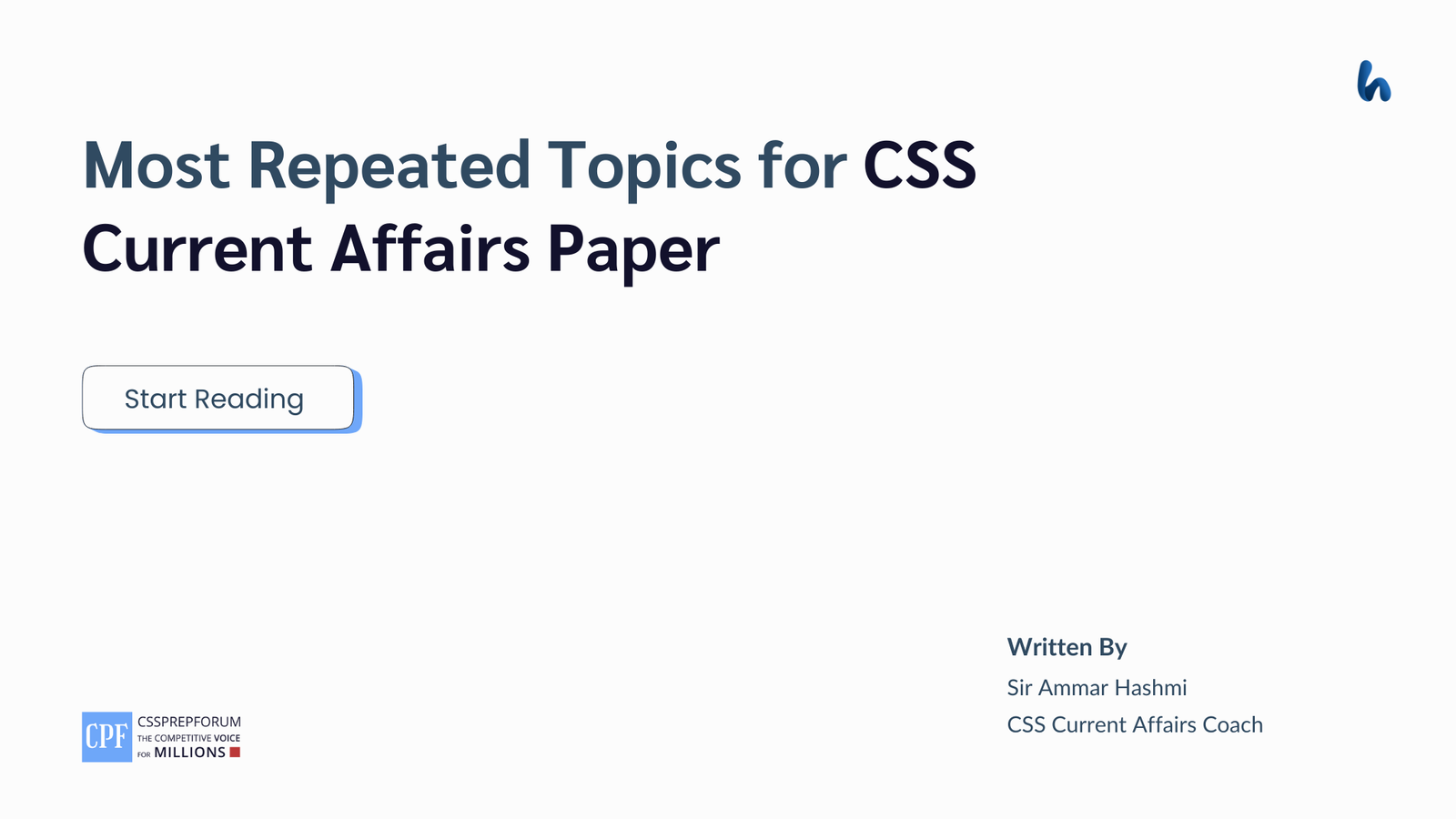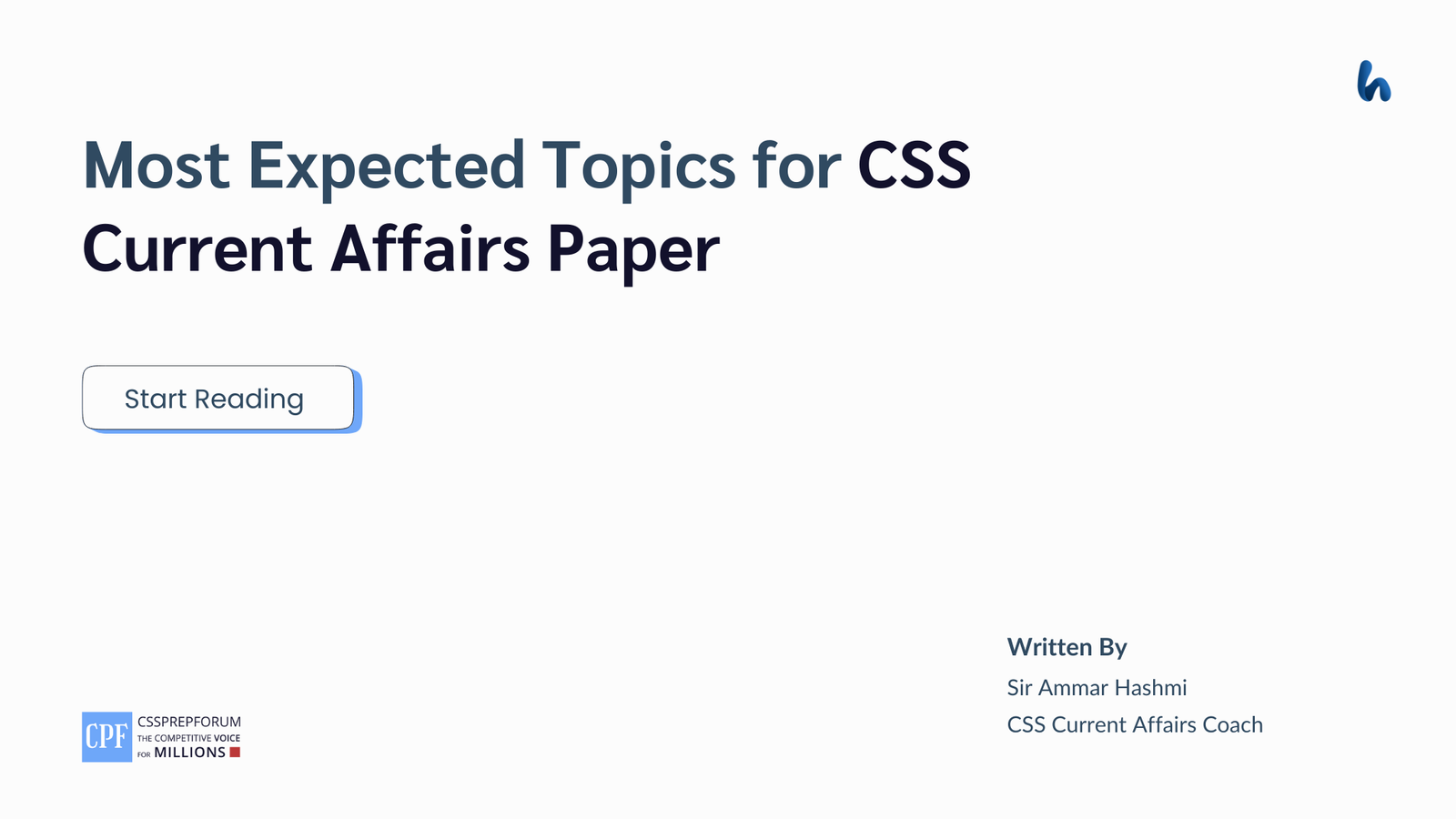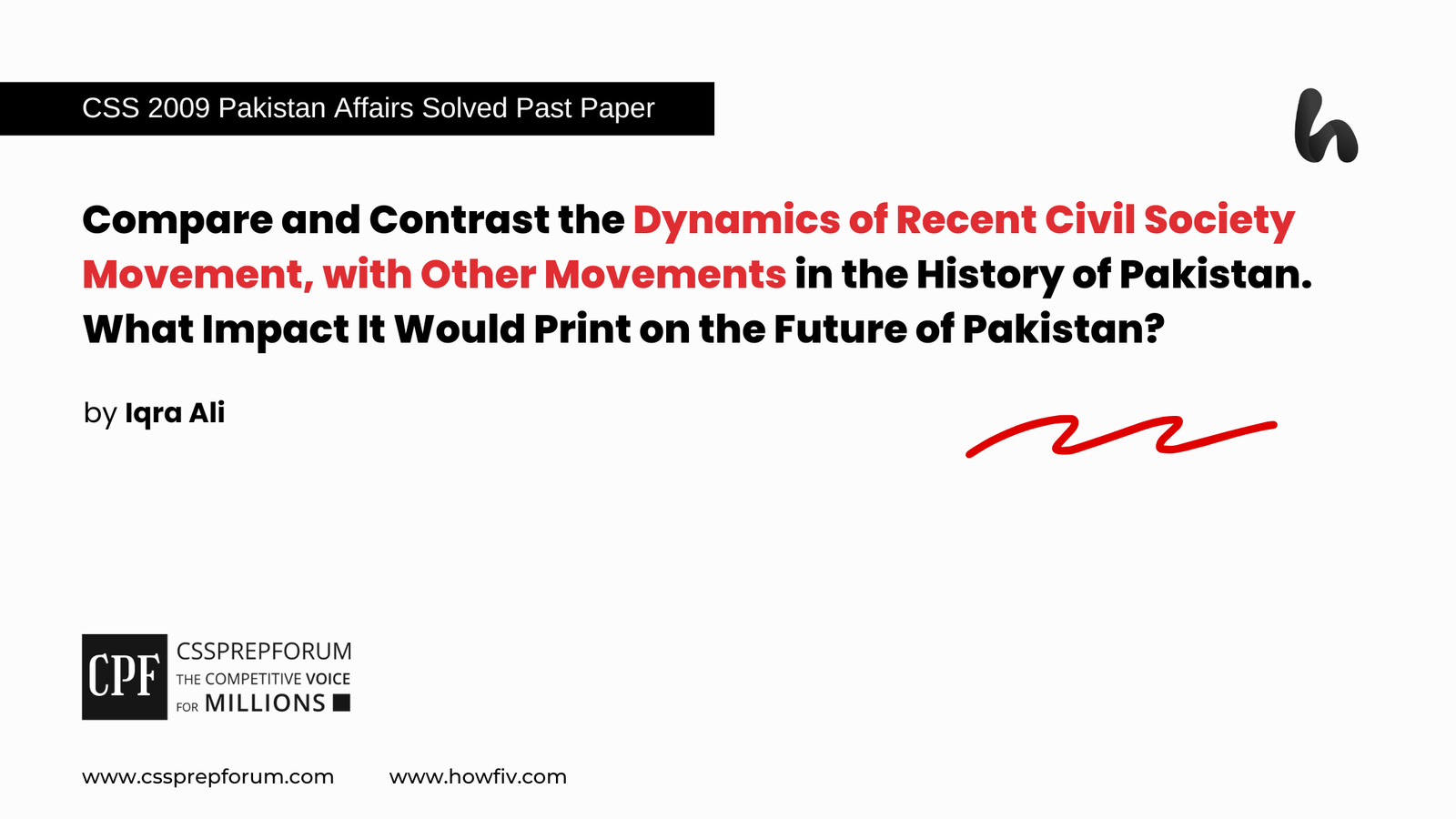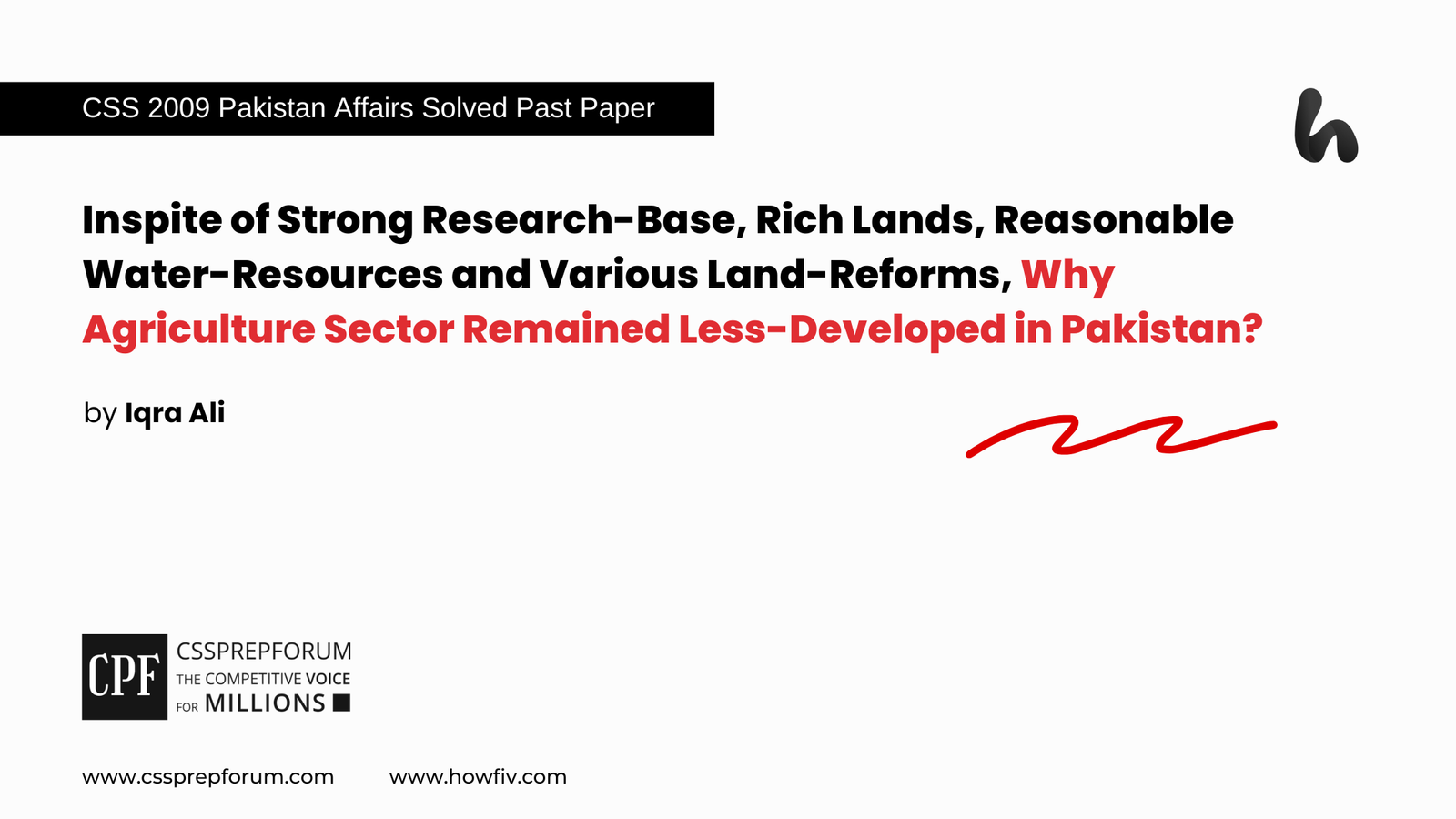The following article is written by Nisha Nawaz, a student of Sir Syed Kazim Ali. Moreover, the article is written on the same pattern, taught by Sir to his students, scoring the highest marks in compulsory subjects for years. Besides, the knowledge, case studies, quotes, and examples have been taught to him by Miss Irum Arif, the country’s top CSS and PMS Pakistan Affairs coach. For years, Miss Irum Arif, also Sir Kazim’s student, has been known for her teaching methodology and how she helps her students understand questions asked in the exam. Therefore, to help thousands of CSS and PMS aspirants who visit Cssprepforum and Howfiv for better preparation, we have uploaded this article so they can understand how to crack a topic or a question, how to write relevantly, what is coherence, and how to include and connect ideas, opinions, and suggestions to score the maximum.

Outline:
1) Introduction
2) Prevalent conditions of that time
✓ Aloofness from shariah
✓ Spread of social evils
✓ Dominance of Hindu culture
✓ Threat of assimilation
✓ Moral decadence of ruler as a threat to rule
✓ Deviance from divine laws to manmade laws
3) Influence of Sheikh Ahmad Sirhindi on the Muslims of India
✓ Reforming Mystics
✓ Decline of Sectarianism/ Unfaithfulness
✓ Weakening the power surge of the Rajpoot decline of sectarianism
✓ Opposition of Bid’dat (Innovation)
✓ Provided a spiritual basis for national cohesion
✓ Govt. as an essential means of regeneration of society
✓ Reformation of society and true spirit of Islam on morality
✓ Laid the foundations of all political, religious, and intellectual movement
✓ To rescue a community’s conscience belief and faith from destruction
4) Critical analysis
5) Conclusion

1) Introduction
History itself is evidence of the fact that whenever Islam came under any danger by any agency from its enemies or Mujadid Alif Sani, also known as Shaikh Ahmed Sirhindi, regenerated the Islamic teachings into the lives of the Muslims of the Subcontinent during the time of Mughal King, Akbar. By introducing Itibat-e-Sunnah, emphasizing prayer and fasting, and bluntly criticizing Din e Elahi, he was able to revive the true teachings of Islam. Moreover, he rejected the concept of innovation in the religion (Bid’at) which was the cause of the amalgamation of Islam with other religions. In the meantime, along with the religious reforms, he brought social and political reforms through the purgation of the Muslim society and the introduction of the concept of the Two Nation Theory. In a critical diagnosis, his efforts impacted every section of the Muslim society, and he was successful in neutralizing the work of Akbar affecting the mentality of the next Mughal kings toward Orthodox Islam.
2) Prevailing conditions of that time
The initial time span was very different from the latter one. In the beginning, Akbar was a complete religious man who turned himself into a mujtahid (religious administrator) but later he considered that Islam had passed away one thousand years and now there was no need to keep any relation with Mohammedan Prophet Hood. Hence, every step was taken to disconnect the strong bond with Mohammedan Prophet Hood. Likewise, using the name Muhammad and Ahmad were banned and the mosques were closed. Sirhindi has labelled this age as “the age of Islamic poverty”. The establishment of “Din-e-ilahi” was wrapped by the enmity against Islam in the intended name of enlightenment and moderation. Akbar assumed the name “Ummi” to describe his compatibility of rank with that of Prophet Muhammad (Peace Be Upon Him).
The Philosophy of Wahdat-ul-Wajid was presented by some Sufis of Akbar’s era. They believed that there was no living difference between man and his creator God and both, individuals and God are not separate from each other. They also advocated that every particle of the universe represented the presence of God and therefore, the worship of God’s creatures amounted to worship of God. Sheikh Ahmad openly negated this Philosophy and declared it as ultra vises to the principles of Islam. He presented his Philosophy of Wahdat-ul-Shahud, which meant that the creator and creatures were two different and separate entities.
Politically, Akbar’s concept of sovereignty such as Zil-e-Elahi made another attack on the Islamic concepts of the sovereignty of Allah and the practice of prostration before the emperor demoralized the Islamic concept of the supremacy of God. The other important step of Akbar in pursuance of his policy of sympathy and kindness for Hindus was the abolition of the Jizya, the poll tax required to be paid by the non-Muslims in an Islamic state, early in 1564. Afterwards, Akbar showed great respect for Hindu sentiments and many practical steps were acted upon in this context. The situation came to such a lamenting point that he issued orders by putting a stop to the conversion to Islam from other religions. He permitted Hindus to convert to their faith such Hindus as had accepted Islam earlier.
3) Influence of Sheikh Ahmad Sirhindi on the Muslims of India
This was the religious condition of Akbar’s reign, especially at his royal court. Though many ulama, Sufis and scholars flourished there and even enjoyed Akbar’s closeness and intimacy, none of them is reported to have openly come to his opposition. Nevertheless, on the contrary, various sections of Muslim society outside the court reacted against his religious experiment and ideology. Shaikh Ahmad Sirhindi deserves a special mention in this regard. Sources say that he was dissatisfied with the then religious condition. The circumstances led him to great anxiety and distress. Therefore, his reaction to Akbar’s thoughts and activities was most powerful and he openly criticized his attitude towards Islam and Muslims.

Shaykh opposed that division of innovation. He considered that there could never be any beauty in the innovation in religion (Bid ‘at). The reason for this division of innovation in religion was the chaos of Bid ‘at. Shaykh has cited these verses of the Holy Quran and the sayings of the Holy Prophet (PBUH) regarding the issue of Bid’at,
“Today I’ve perfected the religion for you and have completed my favor upon you”.
(Quran)
“He who invents something false which has no linkage with the religion of Islam is forbidden”.
(Hadith)
By the above-mentioned Ahadith (sayings of the Holy Prophet), Shaykh Ahmad Sirhindi has given clarity to his point of view. He considered an innovation in religion the opposite of Sunnah and he rejected innovation in religion. To prove innovation in religion the opposite of Sunnah and to exalt Sunnah.
The Shaikh continued his spiritual experiments, and, in course of time, he proceeded further in the development of the mystic consciousness. Hence the duality of God and the world became clear to him. In other words, he felt that his own existence was different from the existence of God. He also felt that his existence was dependent upon God’s will for its being. It was subservient to God, yet separate. Sirhindi realized that it was the true and the highest mystic stage. He called it the stage Ubudiyat pr abdicate means subservience to God in separate existence. Here he also came to know that his first experience was the result of his intoxication. Due to his love for God and his strong desire in this regard, he had been so submerged in emotion that he had felt that he was not separate from Him. He came to feel that Wahdat-ul- Wujud was not the reality, it was only a feeling, an experience. He clearly came to know that the world and God-or he or God are two. He was fully satisfied with this and realized that all his previous mystic experiences were really subjective and unreliable. This is what he termed Wahdat-ul Shuhud or Tawhid-i-Shuhudi, the unity of Appearance.

In order to popularize Islam, a number of Muslim reformers adopted a liberal point of view in their preaching. They, however, were successful to attract a large number of people to Islam but at the same time, this liberal strategy gave rise to the concept of joint nationalism. This trend proved injurious to the separate and distinct national image of the Muslims.
Sheikh Ahmad put end to that concept and negated the Philosophy of Wahdat-ul-Wajood. He laboured to keep alive the national and the religious identity of the Muslims. He was a staunch advocate of Muslim separatism and adopted a very stern attitude towards Hindus.
4) Critical Analysis
Shaykh opposed that division of innovation. He considered that there could never be any beauty in the innovation in religion (Bid ‘at). The reason for this division of innovation in religion was the chaos of Bid ‘at. Sheikh Ahmad Sirhindi is a major figure and most controversial too, among Ulama during the Mughal period who left a great impact on the religious and political ideas of a section of Muslims not only during the Mughul period but also in subsequent periods, particularly during the 19th and 20th centuries. He had both followers as well as opponents among Muslims in India.
5) Conclusion
The movement of Mujadad Alf-Sani restored Shariah and Islam became the symbol of unity. His revival movement opened new avenues toward pan-Islamic. Sheikh Ahmad, according to Iqbal “a call back to prophethood became the pioneer of religious nationalism. It was under the influence of this movement that the future movements of reforms and revival came to be represented by Shah Waliullah and Syed Ahmad Shakeel, which ultimately made their headway to the destination of the Pakistan movement.
Want to read CSS Pakistan Affairs Solved Past Papers and learn how to attempt them to score high? Let’s click on the link below to read them all freely. All past papers’ questions have been attempted by Sir Kazim’s students, who scored the highest in the subject.
CSS Solved Pakistan Affairs

More Essays
Click on any to start reading the essay.
Want to read General Science & Ability Solved Past Papers to learn how to attempt them to score high? Let’s click on the link below to read them all freely. All past papers have been solved by Miss Iqra Ali & Dr Nishat Baloch, Pakistan’s top CSS GSA coach having the highest score of their students.
Articles Might Interest You!
The following are some of the most important articles for CSS and PMS aspirants. Click on any to start reading.


